Africa
Sudan: Army forces tighten grip on Khartoum as paramilitaries retreat

A top Sudanese army official greeted troops in the Republican Palace on Tuesday after the military gained control of the palace from a paramilitary group.
Assistant Commander-in-Chief of the Armed Forces Gen. Yasser Al-Atta inspected forces at the palace and updated them on the current fighting.
On Friday, the military retook the Republican Palace, the prewar seat of the government, in a major symbolic victory for the Sudanese military in its nearly two years of war against the Rapid Support Forces.
This week, Sudan’s military consolidated its grip on the capital, retaking more key government buildings.
Brig. Gen. Nabil Abdullah, a spokesperson for the Sudanese military, said troops expelled the RSF from the headquarters of the National Intelligence Service and Corinthia Hotel in central Khartoum.
The army also retook the headquarters of the Central Bank of Sudan and other government and educational buildings in the area, Abdullah said.
Sudan, a nation in northeastern Africa, has been unstable since a popular uprising forced the removal of longtime autocratic President Omar al-Bashir in 2019.
A short-lived transition to democracy was derailed when Sudanese army chief Gen. Abdel-Fattah Burhan and Gen. Mohammed Hamdan Dagalo, who leads the RSF fighters, led a military coup in 2021.
The RSF and Sudan’s military began fighting each other in 2023.
Since the start of the year, Burhan’s forces, including Sudan’s military and allied militias, have advanced against the RSF.
They retook a key refinery north of Khartoum, pushed in on RSF positions around Khartoum itself.
The fighting has led to an increase in civilian casualties.
Africa
“I can’t do nuttin’ for ya man”, Nigerian Minister quotes Flavour Flav in rejection of Trump policy
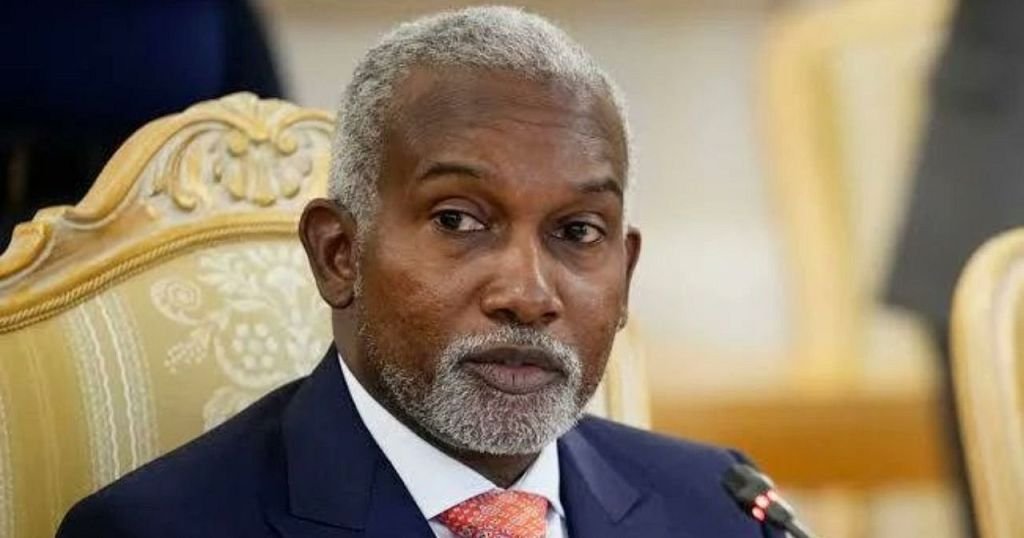
Nigeria won’t accept 300 Venezuelan deportees from the U.S, Foreign Minister Yusuf Maitama Tuggar said in a TV interview on Thursday, following reports that the White House was pushing African leaders to take in illegal immigrants from third-party countries.
In a surprise move, Tuggar started quoting U.S rapper Flavour Flav as a guest on Channels Television’s ‘Politics Today’ in response to news of Washington’s latest deportation policy,
“You’ll remember af line from Flavour Flav: Flavour Flav has problems of his own, I can’t do nuttin’ for ya man”, Tuggar said, referencing the rapper’s famous 1990 track.
The quote follows reports by The Wall Street Journal that five African leaders participating in a summit at the White House from July 9-11 had received letters pushing them to accept migrants deported by the U.S. whose home countries refuse to take them back.
The U.S had also asked Nigeria to take in deportees, Tuggar said, but he argued it would be ‘unfair’ given current issues in the country,
”We have enough problems of our own. We cannot accept Venezuelan deportees to Nigeria for crying out loud”.
Instead, the Foreign Minister said that Nigeria was open to doing business with the U.S emphasising critical minerals and gas trade as potential avenues for future cooperation,
”Nigeria is in a very good position to continue a symbiotic relationship with the U.S”, he said.
While Nigeria appears to reject U.S deportees for now, other countries are facing mounting pressure to comply with Trump’s new immigration policy.
On Monday, South Sudan accepted eight men, including nationals from Myanmar, Cuba, Vietnam, Laos, and Mexico all convicted of serious crimes like murder and sexual assault.
Previous removals have gone to El Salvador and Costa Rica, and talks are reportedly ongoing with countries like Rwanda, Benin, and Moldova.
Africa
UN warns millions will die by 2029 if new funding for HIV programs isn’t found
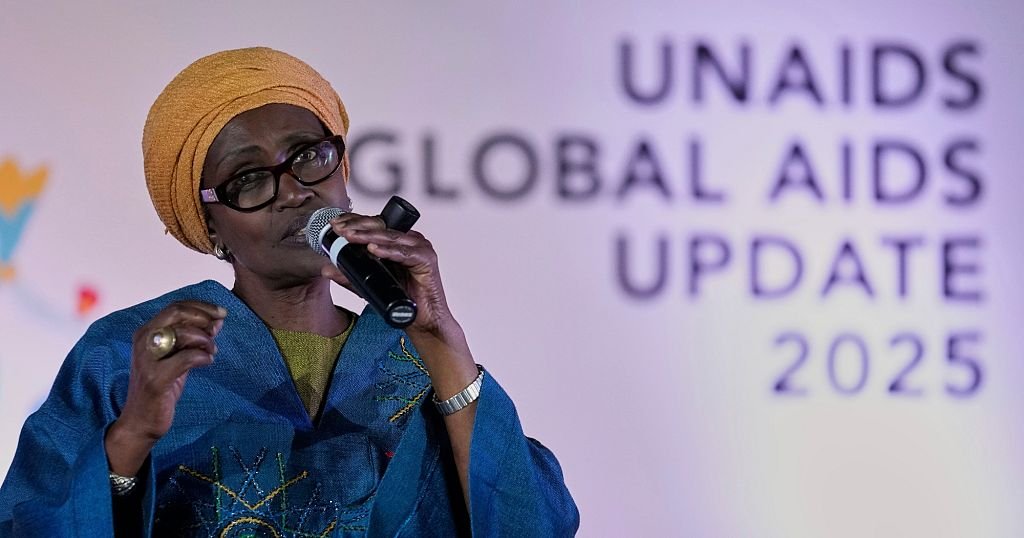
Years of American-led investment into AIDS programs have reduced the number of people killed by the disease to the lowest levels seen in more than three decades and provided life-saving medicines for some of the world’s most vulnerable.
But in the last six months, the sudden withdrawal of U.S. money has caused a “systemic shock,” U.N. officials warned, adding that if the funding isn’t replaced, it could lead to more than 4 million AIDS-related deaths and 6 million more HIV infections by 2029.
A new UNAIDS report released Thursday said the funding losses have “already destabilized supply chains, led to the closure of health facilities, left thousands of health clinics without staff, set back prevention programs, disrupted HIV testing efforts and forced many community organizations to reduce or halt their HIV activities.”
It also said that it feared other major donors scaled back their support, reversing decades of progress against AIDS worldwide — and that the strong multilateral cooperation is in jeopardy because of wars, geopolitical shifts and climate change.
A ‘lifeline’ removed
The $4 billion that the United States pledged for the global HIV response for 2025 disappeared virtually overnight in January, when U.S. President Donald Trump ordered that all foreign aid be suspended and later moved to close the USAID.
Andrew Hill, an HIV expert at the University of Liverpool who is not connected to the United Nations, said that while Trump is entitled to spend U.S. money as he sees fit, “any responsible government would have given advance warning so countries could plan,” instead of stranding patients in Africa where clinics were closed overnight.
The U.S. President’s Emergency Plan for AIDS Relief, or PEPFAR, was launched in 2003 by U.S. President George W. Bush, the biggest-ever commitment by any country focused on a single disease.
UNAIDS called the program a “lifeline” for countries with high HIV rates, and said that it supported testing for 84.1 million people, treatment for 20.6 million, among other initiatives. According to data from Nigeria, PEPFAR also funded 99.9% of the country’s budget for medicines taken to prevent HIV.
U.N. Assistant Secretary-General Angeli Achrekar, a UNAIDS deputy executive director who was PEPFAR’s principal deputy coordinator until January 2023, said the program is under review by the Trump administration though Secretary of State Marco Rubio issued a waiver “to continue life-saving treatment.”
““The extent to which it will continue in the future, we don’t know,” she told a video news conference with U.N. reporters in New York. “We are cautiously hopeful that PEPFAR will continue to support both prevention and treatment services.”
A gap impossible to fill
In 2024, there were about 630,000 AIDS-related deaths worldwide, per a UNAIDS estimate — the figure has remained about the same since 2022 after peaking at about 2 million deaths in 2004.
Even before the U.S. funding cuts, progress against curbing HIV was uneven. UNAIDS said that half of all new infections are in sub-Saharan Africa.
Tom Ellman of Doctors Without Borders said that while some poorer countries were now moving to fund more of their own HIV programs, it would be impossible to fill the gap left by the U.S.
“There’s nothing we can do that will protect these countries from the sudden, vicious withdrawal of support from the U.S.,” said Ellman, head of the group’s South Africa medical unit.
Experts also fear another significant loss — data.
The U.S. paid for most HIV surveillance in African countries, including hospital, patient and electronic records, all of which has now abruptly ceased, according to Dr. Chris Beyrer, director of the Global Health Institute at Duke University.
“Without reliable data about how HIV is spreading, it will be incredibly hard to stop it,” he said.
Africa
Bill granting head of Mali’s junta, Gen. Assimi Goita, five more years in power signed into law
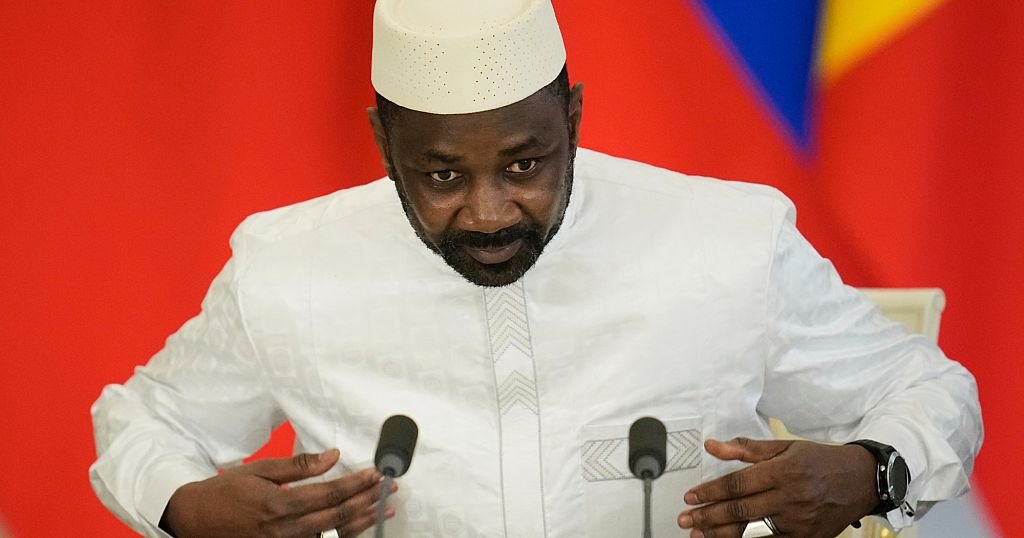
The head of Mali’s junta General Assimi Goita has granted himself a five-year presidential mandate, renewable “as many times as necessary” and without election, in a bill signed into law on Thursday.
The bill implemented recommendations of the national dialogue consultations organised by the military regime in April and boycotted by political parties. It was passed by the military-appointed legislative body last week.
The law, which Goita approved on Tuesday, allows him to lead the West African nation until at least 2030, despite the military government’s initial pledge to return to civilian rule in March 2024.
In May, he signed a decree dissolving all political parties. It coincided with a surge in kidnappings of pro-democracy activists in the capital, Bamako, and just days after a demonstration by several hundred activists.
Restrictions on freedom
The new law is the latest in a series of restrictions on freedoms by Mali’s military leadership to consolidate its power in the jihadist-hit Sahelian nation.
Goita has led the country since orchestrating two coups in 2020 and 2021 as an insurgency by jihadi groups linked to al-Qaida and the Islamic State group worsened.
Mali, a landlocked nation in the semiarid region of Sahel, has been embroiled in political instability that swept across West and Central Africa over the last decade.
-

 Asia4 days ago
Asia4 days agoIndonesia’s Mount Lewotobi Laki Laki erupts sending ash 11 miles into sky
-

 Africa3 days ago
Africa3 days agoCairo telecom fire injures 14, disrupts internet nationwide
-

 Europe3 days ago
Europe3 days agoHe was born to a US citizen soldier on an army base in Germany. Now he’s been deported to Jamaica, a country he’d never been to
-

 Asia3 days ago
Asia3 days agoA torpedoed US Navy ship escaped the Pacific in reverse, using coconut logs. Its sunken bow has just been found
-

 Europe2 days ago
Europe2 days agoTrump promised 200 deals by now. He’s gotten 3, and 1 more is getting very close
-
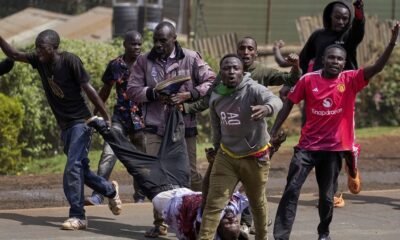
 Africa4 days ago
Africa4 days agoKenya: at least 10 dead in ongoing protests, 29 injured nationwide
-

 Lifestyle3 days ago
Lifestyle3 days agoArmani couture channels black as maestro misses Paris bow for 1st time, days from 91st birthday
-
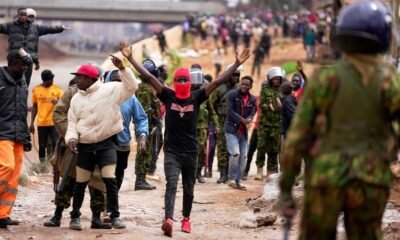
 Africa3 days ago
Africa3 days agoUN Human Rights Office says ‘deeply troubled’ by Kenya protester deaths




